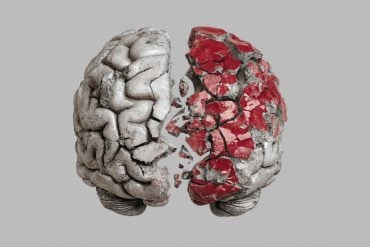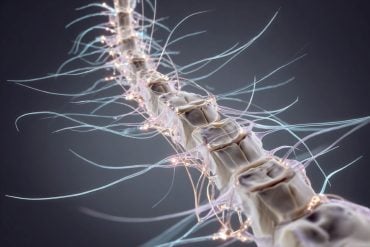Summary: A new study reveals that women’s tears contain chemicals that significantly reduce aggression in men. The study, which builds on known effects in rodents, employed a two-person game designed to elicit aggressive behavior in men, who unknowingly sniffed either women’s tears or saline.
The results showed a dramatic 40% drop in aggressive behavior and a corresponding decrease in brain activity in aggression-related regions after exposure to the tears. This research not only confirms the presence of social chemosignaling in humans but also challenges the notion that emotional tears are a uniquely human trait.
Key Facts:
- Men exposed to women’s tears showed a 40% reduction in aggressive behavior.
- Brain imaging revealed decreased activity in aggression-related regions when men sniffed women’s tears.
- The study provides evidence of social chemosignaling affecting human aggression, similar to findings in animals.
Source: PLOS
New research, publishing December 21st in the open access journal in PLOS Biology, shows that tears from women contain chemicals that block aggression in men. The study led by Shani Agron at the Weizmann Institute of Science, Israel, finds that sniffing tears leads to reduced brain activity related to aggression, which results is less aggressive behavior.
Male aggression in rodents is known to be blocked when they smell female tears. This is an example of social chemosignaling, a process that is common in animals but less common—or less understood—in humans. To determine whether tears have the same affect in people, the researchers exposed a group of men to either women’s emotional tears or saline while they played a two-person game.
The game was designed to elicit aggressive behavior against the other player, whom the men were led to believe was cheating. When given the opportunity, the men could get revenge on the other player by causing them lose money. The men did not know what they were sniffing and could not distinguish between the tears or the saline, which were both odorless.
Revenge-seeking aggressive behavior during the game dropped more than 40% after the men sniffed women’s emotional tears.
When repeated in an MRI scanner, functional imaging showed two aggression-related brain regions—the prefrontal cortex and anterior insula—that became more active when the men were provoked during the game, but did not become as active in the same situations when the men were sniffing the tears. Individually, the greater the difference in this brain activity, the less often the player took revenge during the game.
Finding this link between tears, brain activity, and aggressive behavior implies that social chemosignaling is a factor in human aggression, not simply an animal curiosity.
The authors add, “We found that just like in mice, human tears contain a chemical signal that blocks conspecific male aggression. This goes against the notion that emotional tears are uniquely human.”
About this aggression research news
Author: Claire Turner
Source: PLOS
Contact: Claire Turner – PLOS
Image: The image is credited to Neuroscience News
Original Research: Open access.
“A chemical signal in human female tears lowers aggression in males” by Shani Agron et al. PLOS Biology
Abstract
A chemical signal in human female tears lowers aggression in males
Rodent tears contain social chemosignals with diverse effects, including blocking male aggression. Human tears also contain a chemosignal that lowers male testosterone, but its behavioral significance was unclear. Because reduced testosterone is associated with reduced aggression, we tested the hypothesis that human tears act like rodent tears to block male aggression.
Using a standard behavioral paradigm, we found that sniffing emotional tears with no odor percept reduced human male aggression by 43.7%. To probe the peripheral brain substrates of this effect, we applied tears to 62 human olfactory receptors in vitro. We identified 4 receptors that responded in a dose-dependent manner to this stimulus.
Finally, to probe the central brain substrates of this effect, we repeated the experiment concurrent with functional brain imaging. We found that sniffing tears increased functional connectivity between the neural substrates of olfaction and aggression, reducing overall levels of neural activity in the latter.
Taken together, our results imply that like in rodents, a human tear–bound chemosignal lowers male aggression, a mechanism that likely relies on the structural and functional overlap in the brain substrates of olfaction and aggression.
We suggest that tears are a mammalian-wide mechanism that provides a chemical blanket protecting against aggression.








